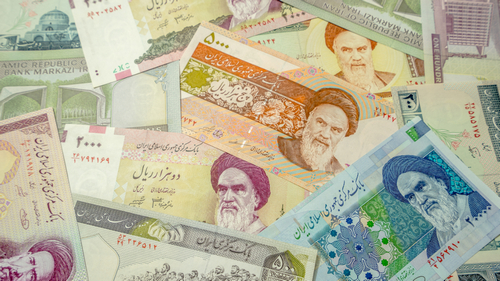Iran continues to explore the potential use of cryptocurrencies as a tool to mitigate the impact of economic sanctions imposed by the United States.
According to the Financial Tribune news portal, the Central Bank of Iran (CBI) will allow banks and licensed forex brokers to use cryptocurrency to pay for imported goods from abroad. At the same time, according to the new regulatory framework, cryptocurrency should come only from licensed miners. These are considered those whose mining operations are officially authorized by the Iranian government as an industrial activity. Let’s talk about the situation in more detail.
Recall that the attention of the Iranian government to cryptocurrencies has been known for a long time. In particular, in November 2020, the country’s Central Bank spoke about its desire to buy up cryptocurrency mined by local miners. To this end, the Iranian Ministry of Energy even issued a special decree requiring registered miners to sell cryptocurrency to the main bank.
The news surprised the fans of blockchain assets, because representatives of traditional finance, along with officials, usually disapprove of coins. Still, the task of full-fledged decentralized cryptocurrencies is to allow financial parties to interact with each other directly, that is, without intermediaries. Banks are the last ones in the ordinary world.

In this case, bankers not only approve of the cryptocurrency, but also use it. In Iran, coins have found their official use to pay for imported goods. And this once again underlines the power of the blockchain and the prospects for decentralized assets.
Cryptocurrency regulation to a new level
The Iranian government has approved new rules that will allow cryptocurrency to be legally used for imports as early as October 2020. But all this can be done on the condition that the miners sell their coins directly to the main bank of the country. It looks like this strategy has been developed for several years, because in the report of the Iranian think tank Majlis Research Center for 2018 there is the following quote.
According to experts, one of the ways to avoid the negative consequences of unfair sanctions is to use cryptocurrency for foreign trade.
That is, representatives of the country’s leadership considered the prospect of interacting with cryptocurrencies even when the niche entered a long phase of the bear market. This means that they saw the prospects for blockchain assets in the form of decentralization and the possibility of sending coins to the recipient anywhere in the world.
In January this year, Shahab Javanmardi, a member of Iran’s Chamber of Commerce, Mining and Agriculture, called on the government to use the crypt to overcome trade difficulties in a harsh geopolitical climate. Here is the comment made by the expert.
Repatriation of gas and electricity export revenues is currently not possible due to US sanctions.
Note that Iran is not the only country where financial regulators are looking more closely at the crypto market. According to the Minister of Finance of South Korea Hong Nam-ki, from next year the income of local cryptocurrency traders will be taxed. He spoke about this in a quote from Cointelegraph.
This is inevitable, we will need to tax the profits from trading virtual assets.
Hong emphasized that Bitcoin-like cryptocurrencies will be taxed as «intangible assets.» According to him, it would be a «misunderstanding» to regard them as ordinary currencies. The minister also warned that cryptocurrency trading is vulnerable to new forms of fraud, urging investors to remain vigilant when choosing investments.
We believe that the decision of the Iranian leadership is extremely unusual for the cryptocurrency industry at its current stage of development. Firstly, officials and bankers rarely approve of blockchain-based coins as a phenomenon, and secondly, they practically do not use them for their own needs. In this case, it was the government of the country that initiated the use of cryptocurrencies – and this again reminds of the limitless opportunities that this type of asset opens up to its users.


